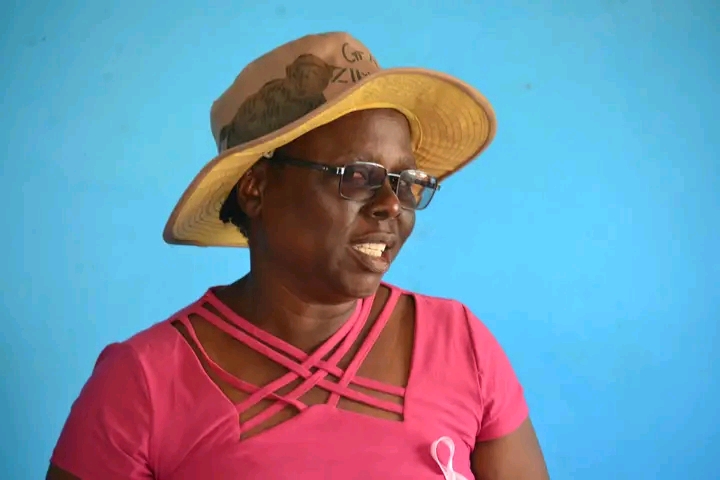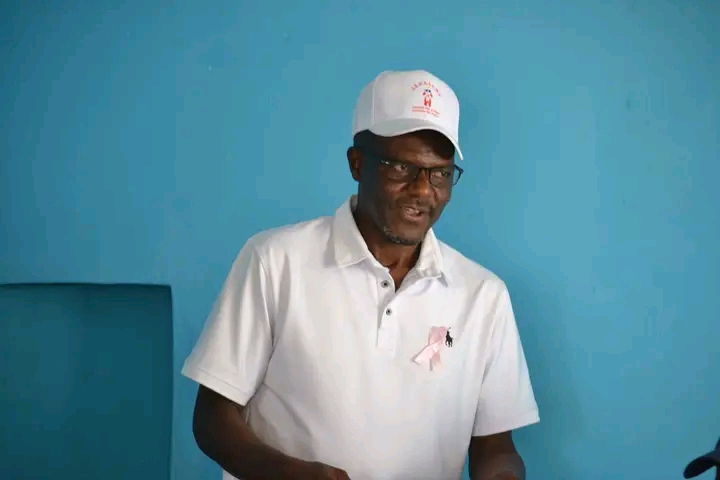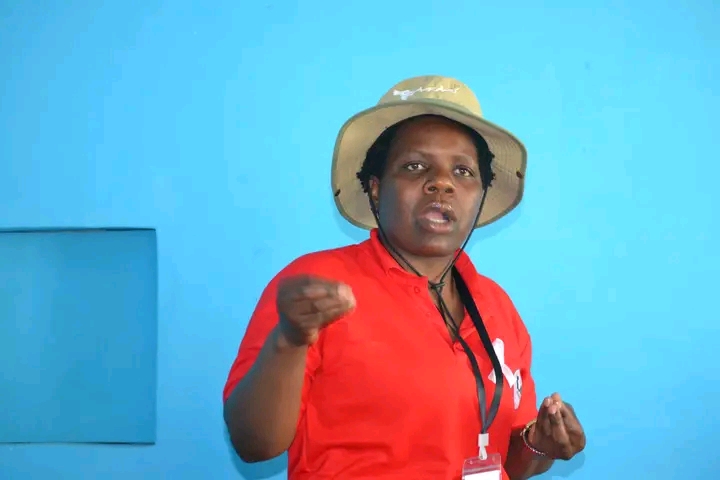By Fanuel Chinowaita

Mutare, 20 October 2025 – The Zimbabwe Congress of Trade Unions (ZCTU) on Saturday joined workers across the world in commemorating the World Day for Decent Work with a strong call for fairness, inclusion, and improved safety standards in the changing world of work.
The event, held at the ZCTU Manicaland offices in Mutare, ran under the theme “Decent Work in a Digital Economy.” The ZCTU President Florence Mucha Taruvinga’s message was read on her behalf by Mrs Nyakurai from the National Railways of Zimbabwe.
In the statement, ZCTU said the digital revolution had created both opportunities and challenges for workers in Zimbabwe.
“Technology has created new opportunities but also challenges that affect workers’ rights, job security, and working conditions,” the statement read.
ZCTU expressed concern that despite the expansion of the digital economy, most workers continue to face precarious employment conditions without fair wages or social protection.
“The ZCTU notes with concern that digitalisation has led to job losses in traditional sectors, casualisation of labour, and increased inequality,” the statement continued. “Workers in the gig economy, such as delivery riders and online service providers, often lack basic labour rights, union representation, and safety nets.”
The labour body called on the government and employers to ensure that digital transformation promotes decent work and not exploitation.
“Policies must be put in place to guarantee fair wages, social protection, and safe working environments for all workers — including those in the digital and informal sectors,” said the statement.
ZCTU also reaffirmed its commitment to defending workers’ rights, promoting social justice, and standing “in solidarity with all workers fighting for decent work, fair pay, and dignity in the workplace.”

Delivering a presentation titled “Safety and Health at Work: A Decent Work Agenda,” Martin Magodi, the Zimbabwe Energy Health Services and Security Civil Workers Union (ZEHSSCWU) Regional Officer for Manicaland, underscored that occupational safety and health (OSH) are central to achieving decent work in Zimbabwe.
He said the concept of decent work rests on four pillars — social protection, rights at work, social dialogue, and employment opportunities — all of which depend on safe and healthy workplaces.
“Safety and Health at work is a critical component of decent work in Zimbabwe,” Magodi said. “Collective action from the government, employers, workers, and stakeholders is necessary to create a safe and healthy working environment for all.”
Magodi outlined key challenges in workplace safety, including inadequate resources, limited awareness, and a growing informal sector where accidents are rarely reported. He cited National Social Security Authority (NSSA) statistics showing thousands of workplace injuries and deaths in recent years.
Year Serious InjuriesFatalities
20195,08249
20203,52845
20215,64142
2022 (Jan–Aug)3,22452
20232,55444
20244,24270
Magodi warned that unreported accidents, particularly in the informal mining and construction sectors, remain a serious concern. He called for stronger enforcement of occupational safety regulations and alignment of the Occupational Safety and Health Act (Chapter 7:09) and Labour Act (Chapter 28:01) with international standards.
“Accidents cost money and lives. Do not learn safety by accident — take action and monitor,” he urged.

Representing the National Social Security Authority (NSSA), Mr Kambarami acknowledged that safety levels in small-scale mining operations remain alarmingly low.
He said the Authority is worried about the number of unreported incidents in artisanal and small-scale mining and called for stronger safety training, inspections, and awareness programs in mining communities.
The Conscious for Development and Empowerment Trust (CODET) also gave a solidarity message through its representative, Nadine Fortunate Black, who called for the inclusion of young people in shaping the future of work.
Black said youth voices are crucial in developing labour and digital economy policies that reflect modern workplace realities.
“Youths must be included and empowered to participate in shaping the future of work, especially as technology transforms industries,” she said. “Decent work cannot be achieved without the active involvement of young people.”

Proud Nyakuni, Legal and Organising Officer of the Food Federation and Allied Workers Union of Zimbabwe (FFAWUZ), gave an overview of the origins of the World Day for Decent Work.
She said the day, commemorated annually on 7 October since 2008, was established by the International Trade Union Confederation (ITUC) to promote fairness, equality, and social justice in the world of work.
“This day raises awareness on the importance of decent work — where every worker enjoys safety, fair treatment, and social protection such as the right to health and other benefits,” Nyakuni said.
The commemorations in Mutare brought together trade unionists, government representatives, and civil society actors who collectively called for safe, inclusive, and fair workplaces across all sectors.
Participants agreed that as Zimbabwe’s economy becomes increasingly digital, the fight for decent work must evolve to protect every worker — from factory hands to gig economy couriers — ensuring that “no one is left behind.”
